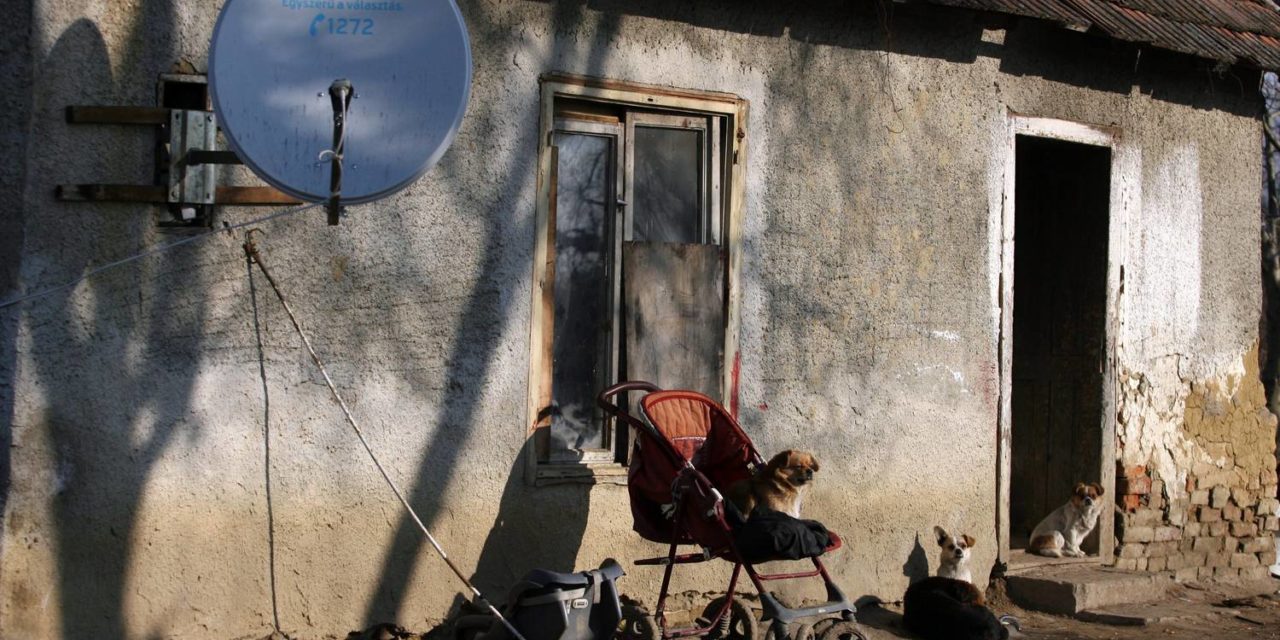Gergely Karácsony gave an incendiary speech to his enthusiastic audience at the demonstration against the construction of Fudan University held last Saturday. In addition to several other hair-raising statements, the mayor also said that, in his opinion, "wonderful things could be done in this country" from the HUF 500 billion that the government would spend on the university. For example, “child poverty could be eradicated once and for all. Maybe Jakab could tell Kövér fifty thousand times in the Parliament that I'm a boy". Or-or. This is a real dilemma for the united opposition.
But seriously, let's talk about child poverty as an existing problem. This is how Ildikó Husz writes about the question in the introduction to his study of the same name:
"For many people, the term child poverty sounds particularly good, since children usually do not have their own material possessions, so they can only be poor because of . In this sense, it would be more correct to talk about the poverty of parents or families with children."
In liberal democracies, however, child poverty has now advanced into an independent field of research, since children
"they are innocent victims of the social factors that lead to poverty and maintain it, and in relation to whom the responsibility of the public is therefore even greater than usual".
Here is another group of victims, only in their case it is really true that they were innocent. On the other hand, we could and should talk at length about who exactly is the primary and direct responsible for this phenomenon. However, for some reason, the concept of "individual responsibility" is uniformly missing from studies discussing child poverty. It is interesting that neoliberalism, while granting the individual as an individual more and more rights, leaves the responsibility - and duty - to the community, see the use of "social responsibility" in certain topics. As if the community does not even consist of individuals, but should be treated as an entity independent of them.
As a faithful liberal, the Hungarian Anti-Poverty Network writes in its 2020 "poverty report" that the labor market processes that took place between 2008-2018 are presented as a miracle by government communication,
"while in fact Hungary only moved from the end of the list to the middle".
Therefore, according to them, the Hungarian employment, which the Gyurcsánys brought under the flag of the frog, should at least have been raised to the top of the list by the national government. Or to an even more prestigious place.
They even write that
"the indicators of poverty and exclusion have indeed undergone a significant improvement in the last decade, but these processes took place in a similar way in Central and Eastern Europe as well".
Just to have joy in joy. After the forced and reluctant recognition of the government's results, the nail just slips out of the bag, and the black soup comes:
"however, what is far less favorable than ours is the distribution of incomes, the value of the Gini coefficient".
So we arrive at "income inequality", which obviously can only be countered by "income equality". Freedom equality Brotherhood! The same income for everyone, both those who can and want to work, and those who could but don't want to! How fair, right?
However, instead of false and hypocritical slogans, let's look at the numbers! In its 2010 report examining child poverty under the socialist government, the KSH states that for financial reasons, every tenth child did not eat meat or fish, and this was a problem affecting every fifth child among those living in the lowest income fifth. Vegetables and fruit were unaffordable in 15 percent of the average Hungarian households with children due to lack of money, and the frequency of occurrences increased in parallel with decreasing financial opportunities. Of the children living in the families of heads of households who are weakly connected to the labor market and often have only a basic education, about one in three did not regularly consume meat, more than 38 percent of them ate fruit, and a quarter did not have regular access to any of them. It was not much easier for some children living in single-parent households either: in 16 percent of their households, they could not eat meat and more than 19 percent of vegetables and fruits regularly.
Shoes and boots were bought new in the majority of households, but one in five children under the age of 16 did not receive new clothes due to a lack of money, and this mainly affected those living in villages with three or more children (42 percent) and those belonging to the lowest income decile. In the households of the latter, more than 36 percent were those who preferred to acquire the items needed for dressing second-hand.
On average, 8 percent of families with children were not able to obtain the medicine prescribed by the doctor for their child under the age of 16. The data showed that in this regard, the parent becoming unemployed represents the greatest risk. In such households, there was more than 21 percent of those who could not take the medication prescribed for the child, while this ratio was only 4 percent in active households. The situation was worst in unemployed households belonging to the lowest income deciles, where the proportion of those unable to pay for medication rose to 29 percent, and 7 percent of all children under the age of 16 lived here.
All in all, it can be said that the accumulated deprivation mostly affected the poor, unemployed, and those living in households with children headed by a low-educated household head. The increase in the number of children in itself increased the chance of the accumulation of deprivation, but if all this was combined with income poverty, then almost three quarters of the children living here probably became excluded.
This is what the 2010 research wrote, based on what was created by the socialists' aid-based social approach. But let's see how we stood ten years later, in 2020!

Demonstration against Fudan University Photo: Gyula Péter Horváth
the EUROSTAT survey, since 2010, child poverty has decreased in Hungary by the third largest rate in the European Union. While Hungary was only 25th in the ranking in 2010, i.e. only three countries had higher child poverty than ours, compared to this, according to the latest data, we have improved seven places. But the EUROSTAT data also prove that the government's policy based on job creation, tax reduction and family subsidies has led to positive results.
And then let's return for a moment to Ildikó Husz's study, in which the author specifically addresses those who dare to seek individual responsibility in child poverty and child hunger:
"Shopping baskets loaded with goods don't give the impression of poverty either, even if the family you see in the store has barely enough food on the table in two weeks. Many abjectly poor families are accused of not being able to live responsibly: when there is money in the house, there is plenty to eat and drink, the children also get chocolate and cola, but in the second half of the month, there is nothing left of the abundance. In this study, there is no way to analyze in detail how poverty leads to the "live for today" approach to life, in any case it is worth considering that poor families and their children live in the same consumer society as more fortunate peers. They also come across advertisements that suggest that the existence of certain products - certain types of soft drinks, sweets, branded clothes, shoes - are essential for happiness... The economic development of the country would not justify the starvation or insufficient clothing of any child, or the misery of any family. the problem is not here, but in the inadequate functioning of the social care system , which is responsible for the holey social network... In public opinion, we often come across views according to which some irresponsible, deviant or immoral behavior is behind (deep) poverty. This opinion, which ultimately blames the (deep) poor themselves for their fate, persists despite the fact that we now have numerous research results that question this. A series of studies have shown that the development of certain irrational and irresponsible thinking patterns and behavioral characteristics considered immoral is not the cause of poverty, but a consequence . Even the temporary scarcity of material resources significantly limits a person's cognitive capacities and performance, hinders rational thinking and making good decisions. These risk factors indicate the most important mechanisms - poor labor market situation due to low education and low income-generating capacity, insufficiently efficient family support system, ethnic-based discrimination, regional differences in access to quality services - which are responsible to varying degrees for the development of poverty and for its long-term survival."
First of all, I would like to draw attention to the author's use of words, according to which there are poor and there are lucky ones. It is no coincidence that workers and non-workers, modern social science has long surpassed these categories, it is obviously discriminatory, not PC enough. The definition of victim and oppressor is better - in a softer version, the latter can also be called lucky. That someone studied a lot and then worked even more - thereby creating value - for a higher income? It is not fashionable to voice such a thing in liberal social science salons.
Then there is the question of cause and effect, or more precisely, the twisting of its slope. But I would still like to know if our grandparents and great-grandparents, who lived through the poverty, humiliation and starvation that followed the two wars and then the attic sweeps, who rebuilt this mutilated country, what would they say to the pale purple heat wave above, sorry, brainstorming? What would they say if they knew that every child today gets their textbooks for free (with taxpayers' money)? That today all needy minors eat for free (with taxpayers' money)? And to the fact that where the Hungarian state provides free meals for 90 percent of children, half of the food goes to the laundromat in the first two weeks of the month , because then there is still plenty of family allowance and public service money, so they prefer to eat chips, they drink energy drinks and demand fried meat instead of pumpkin stew?
Finally, let's go back to the mayor's cheap demagoguery, according to which he promises to eradicate child poverty once and for all with a finite amount (500 billion forints), a problem that otherwise reproduces itself, which ironically can reproduce itself precisely because of the wrong answer given by the Karácsony people to the question. Because aid only appeals to that layer that does not produce, only consumes: and the "something for nothing" principle always targets the deep tissues of society and destroys them. Because something is never free, someone else produces it, works for it. But Karácsony knows this exactly, as well as who he wants to make pay the price of the votes bought with demagoguery.
Front page: MTI/György Varga












